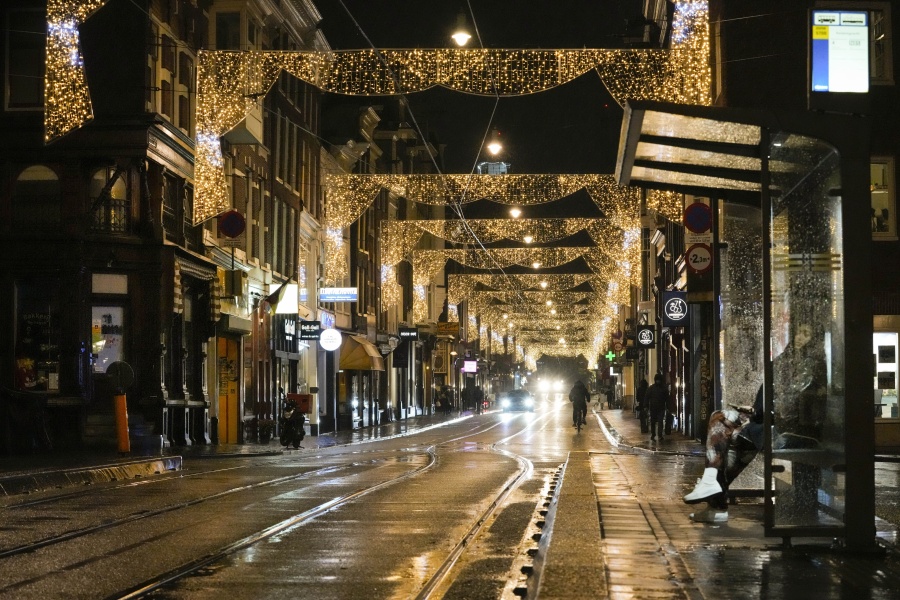LONDON — The bars are shut in Vienna, and the Christmas market is empty in Munich, as several European nations tighten up or even lock down to combat a spike in coronavirus infections.
Meanwhile in London, couples sip mulled wine at a seasonal market near the River Thames, full-capacity audiences fill the seats at the nearby National Theatre, and friends huddle over pints in pubs throughout the city.
Not for the first time in the pandemic, Britain is out of step with many of its neighbors. But this time, it’s happy to be different.
The U.K. has endured three nationwide lockdowns and recorded nearly 145,000 deaths from the coronavirus, the highest toll in Europe after Russia. Now, it is watching as hospitals struggle with surging cases in countries including the Netherlands, Belgium, Germany, Austria and the Czech Republic, bringing lockdowns and restrictions. But while Prime Minister Boris Johnson has warned that a “blizzard from the east” could still ruin Britain’s Christmas, many scientists say the wind is now blowing the other way.
“We are not behind Europe in this wave. They are behind us,” said Paul Hunter, professor in medicine at the University of East Anglia.
The surge that is now hitting mainland Europe, driven by the highly transmissible delta strain of the virus, walloped Britain in the summer, just as the government removed all remaining legal restrictions on the economy and daily life.
Because Britain got delta in the summer, when respiratory viruses are transmitted less readily, “it wasn’t so explosive as we would expect it to be in the winter, and as we’re now seeing in some European countries,” Mark Woolhouse, professor of infectious disease modelling at the University of Edinburgh, said.
“I think the U.K. got its delta wave at a fortuitous time, whereas Austria, for example, it’s the exact opposite,” he said. Austria, where average daily deaths have almost doubled in the past two weeks, has gone into lockdown, and authorities there plan to mandate vaccinations beginning Feb. 1.
The World Health Organization said this week that Europe is the only region of the world where coronavirus cases are rising, and the continent could see another 700,000 deaths by the spring unless urgent measures are taken soon.
But Britain stands somewhat apart.
Many scientists predicted the country would see a spike in cases after July 19 — dubbed “Freedom Day” by the media — when almost all restrictions were lifted. It didn’t happen.
Infection rates that were then among the highest in Europe, drifted up and down but never soared again as feared, though they remain stubbornly high. Britain is recording more than 40,000 new cases a day, a level last seen during the past winter’s surge. But a relatively high vaccination rate — particularly among the elderly — means hospitalizations and deaths are far lower than in previous waves. Still, 130 people a day died in the past week after testing positive for COVID-19.
Britain’s hospitals have not been overwhelmed with COVID-19 cases, though they are extremely busy as the health system struggles to clear a huge backlog built up during the pandemic. Johnson’s Conservative government has so far not had to trigger its “Plan B,” which would reintroduce mask mandates and work-from-home orders to ease pressure on the health system.
That could yet change. The pandemic’s capacity for nasty surprises was highlighted Friday when Britain banned flights from South Africa and several other countries over a new variant described by scientists as a concern because of its high number of mutations and rapid spread.
For now, life in Britain can feel unusually normal — even festive, as many embrace the holiday season with renewed enthusiasm. But it is a new, more constrained normal.



